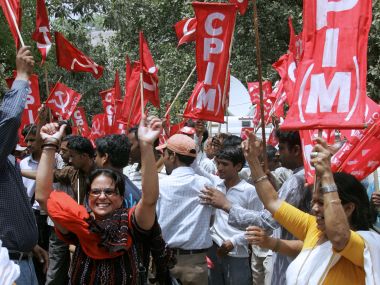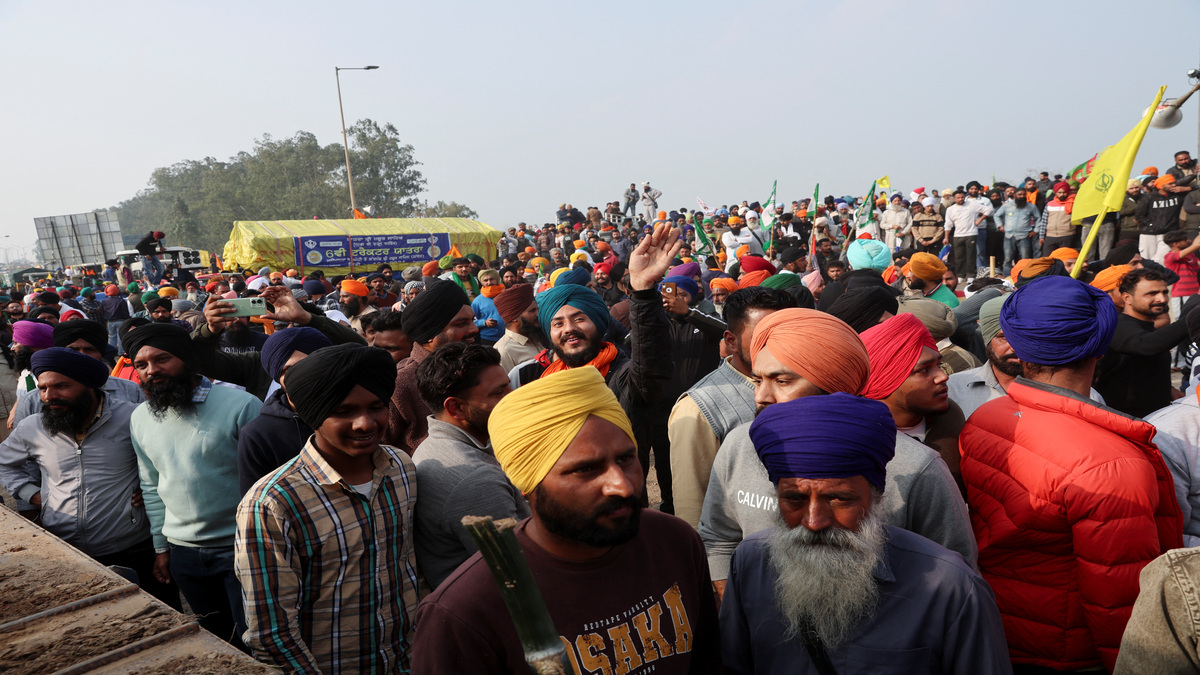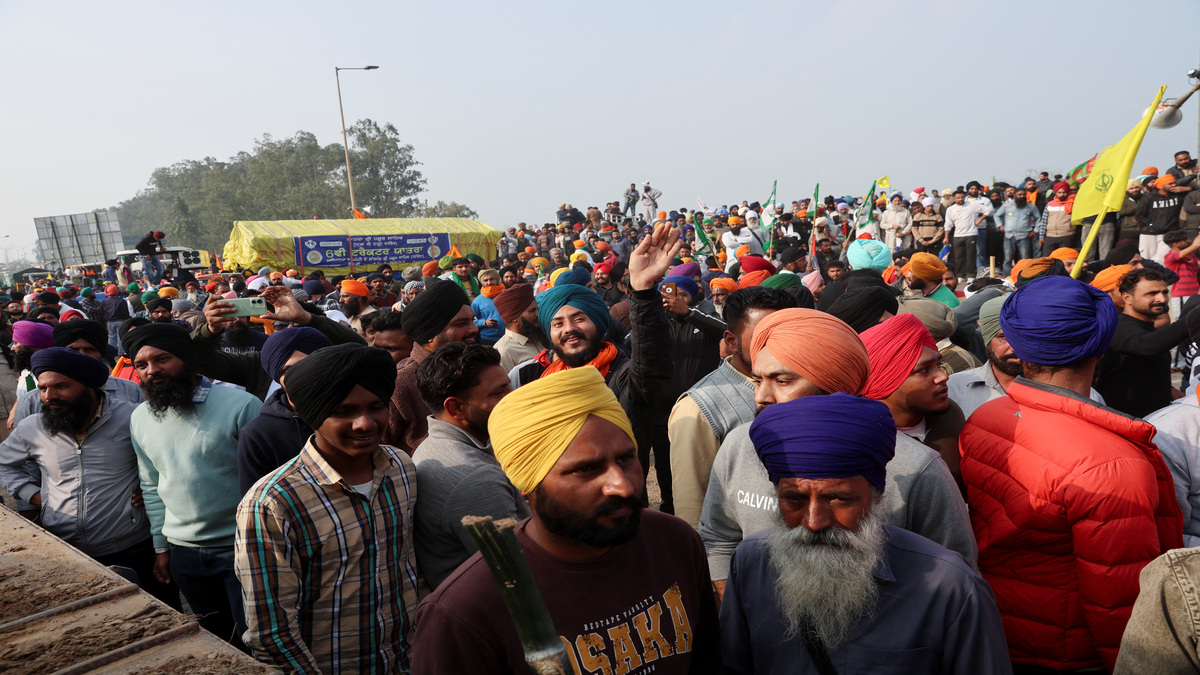The unprecedented heat wave sweeping across Kerala has made door-to-door campaigning tough for political parties and their candidates ahead of the 2016 Kerala Assembly polls . Yet, the severe heat wave and its effects on the people find no mention in their campaigns.
This is just one of several issues conspicuous by their absence on the campaign front, that is dominated by corruption scams and sleaze. The other issues that are glossed over by the parties is the rapid aging of the population, low participation of women in work places, return influx of migrants from Middle East in the wake of the fall in the prices of crude oil etc.
The attempts by the rivals of the ruling Congress-led United Democratic Front (UDF) to cash in on the anti-incumbency sentiments prevailing among the voters, and the latter’s bid to counter them, have drowned these issues of importance for the common man.
The lack of mention of climate change in the manifestos of both the UDF and the Left Democratic Front (LDF) is being viewed by environmentalists as an unpardonable miss at a time when temperatures hit a 29-year high in the state this week, leading to acute shortage of drinking water and destruction of crops in several parts of the state.
Even repeated warnings from scientists about the rising sea levels caused by global warming, that could submerge large swathes of the state’s most populous city of Kochi within 100 years, has not spurred the parties into action.
This has forced several groups of people in the state to take proactive action instead of waiting for politicians to solve their problems. While leading actor Mammootty has launched a programme called ‘Own Your Water’ – to provide water to people hit by drought with the help of voluntary agencies, some online groups have come out with novel protests against the neglect of various issues by the parties.
Notable among them is a Facebook group’s initiative to field a candidate against a leader – who has refused to give way to youngsters – and an online campaign by a women’s collective protesting against the failure of mainstream parties to give adequate representation to women in their candidate list.
The Facebook group – called ‘ Irikkur who will bell the cat? ’ – has proposed their candidate at the Irikkur constituency in the northern district of Kannur, to register their protest against the neglect of the constituency and the people by the sitting MLA and minister K C Joseph, who is a native of the Kottayam district.
The online campaign against Joseph – who has been representing the constituency for the last 35 years, has spurred many – including some from his own party, forcing them to enter the fray either as rebels or independent candidates. Shaji Kuriakose, the candidate proposed by the Facebook group, said that their attempt is aimed to divide votes so that a better candidate can win the election.
The campaign by women’s collective – consisting of prominent women activists – calling on women to vote Nota in the constituencies where there are no women candidates has become a big hit on social media; though the major parties have not taken notice of it so far.
“The male-dominated political parties are deliberately trying to keep the women away from power. Though the women outnumber men in population in Kerala, their representation in the assembly was always below 6 percent,” said Sulfath, an activist supporting the group, adding that it was meaningless to wait for the parties to give women their due.
The total number of women candidates fielded by the three major political combinations in the current election is 37. While 17 women candidates figure in the LDF list, the Congress and the BJP list contain seven and twelve women respectively.
The activists said that most of the seats given to the women were tough political seats where they have little chance to win. The results of the past elections show that more than 60 per cent of the women candidates fielded by major parties had lost the election. This, they say, is a clear indication that the parties do not want women in the Legislature.
The activists said that the issues faced by the women in the state can be solved only if they are represented by one.
“The biggest problem faced by women in the state is low participation in work places. The manifestos of both the fronts have not proposed any concrete steps to increase women’s work participation," they said.
Though Kerala has the highest female literacy rate in the country, it stands 25th among states in terms of female work participation. The work participation rate of women in the state has been hovering around 15 percent for the past several decades.
While the UDF manifesto is silent on the issue, the LDF manifesto promises to increase the work participation rate to 18 percent in the next five years. Women activists take that promise with a pinch of salt since similar promises made in the previous manifestos have remained just that, promises on paper.
The LDF promise to create 25 lakh jobs in the next five years supports their apprehension. The target is in fact more than the number of unemployed people in Kerala. According to the state economic review, the current unemployment rate in the state is 7.4 percent. This works out to 24.71 lakh jobless people. If the LDF succeeds in fulfilling the promise, there will be no need for Keralites to go out in search of jobs after five years.
But even die-hard supporters of LDF find it difficult to swallow the promise. Joseph Mathew, who served as IT advisor to V S Achuthanandan when he headed the government between 2006 and 2011, said that creation of 25 lakh jobs, including 10 lakh jobs in the IT, Tourism and knowledge sectors, was highly unrealistic in a state like Kerala where investors dread to come due to labour militancy.
He pointed out that concerted efforts by the successive governments to promote IT in the last two decades could not even create one lakh jobs so far. The LDF seeks to create 2.5 lakh jobs in the IT sector by creating an additional one crore sq ft built-up space.
Kerala Pradesh Congress Committee (KPCC) secretary Jyothi Kumar said that the promise, which has become the butt of all jokes on social media, was meant to hoodwink the people. The manifesto has promised to create space but it does not say how they will bring IT companies to occupy the space.
This is considered to be a significant problem in the light of the failure by the Dubai-based TECOM to attract major IT players to the SmartCity they set up in Kochi. Out of 22 companies that have booked a space in the 6.5 lakh sq ft first phase of the 8.8 million sq.ft project inaugurated in February this year, only one is a recognisable IT firm. The remaining are banks, hospitals and telecom service providers.
The UDF manifesto does not lack on far-fetched promises either. It promises to bring down unemployment to 4 percent – a promise it had made during the previous election following which the five-year-rule of their government saw the number of employed in the organised sector show a sharp decline. As per the economic review, it came down from 12.26 lakh in 2000 to 11.36 lakh in 2015.
Both the manifestos are also generous in other sectors. ‘Food for all’, ‘house for all’ and ‘health for all’ figure prominently in the manifestos of both the UDF and the LDF.
Economic experts are doubtful how these promises could be fulfilled at a time when the state is already living on borrowed money and remittances from the Middle East, which have been the mainstay of the economy for long, are coming down.
B A Prakash, Professor, Rajiv Gandhi Institute of Development Studies, Thiruvananthapuram said that the promises were not backed by any suggestion to mobilise resources for fulfilling them. In the absence of this, people tend to take the manifesto as an electoral stunt.
Experts consider the remittances of expatriates, which touched Rs 1 lakh crore last year, as a big source that could be tapped for the development of the state. But the manifestos do not make any attempt to suggest any productive use of this massive resource lying idle in the banks, or being spent on building mansions and buying luxury items.
Sharjah-based Pravasi Bandhu Welfare Trust chairman KV Shamsudheen said that, “NRIs were ready to invest the money in economically sound projects as it will ensure them a steady income on their return to the country. A study done by the Trust showed that 95 percent of the expats in the Middle East were spending their entire earning, leaving nothing for the future.”
“If the government takes an initiative then they will invest part of their earning in economically viable projects. This will secure their future as well as ensure the development of the state. Unfortunately, no one has made any serious efforts to channelize the remittances into productive sectors,” Shamsudheen said.
He pointed out that more than 10,000 NRIs had participated in building the country’s first green field airport in Kochi. If the government comes up with more such projects, the NRIs would be prepared to invest their earnings in them.
Shamsudheen said that the manifestos of both the UDF and the LDF had not inspired confidence among the expatriates. In fact, even resident voters have not taken the manifestos seriously as they believe that they are promises to be forgotten right after the elections.


)




)
)
)
)
)
)
)
)